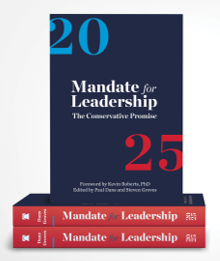Education Briefs
From kindergarten to college age, students are behind in reading, and experts are blaming everything from cell phones to Covid-19 rather than the lack of phonics instruction. An article on YourTango.com reports that younger generations across the board are struggling with literacy. Experts contend that not only are elementary school students struggling, but also those of college age. “We are not complaining about our students,”  humanities professor Adam Kotsko said about their struggles with reading. “We are complaining about what has been taken from them.” While the article gives a partial nod to “Common Core standard shifts” as a reason for poor reading skills, professors like Kotsko point to the introduction of the iPhone. “It is no coincidence that the iPhone itself, originally released in 2007, is approaching college age, meaning that professors are increasingly dealing with students who would have become addicted to the dopamine hit of the omnipresent screen long before they were introduced to the pleasures of the page,” Kotsko wrote. And while there’s doubtless some truth to his observation, there is also failure to acknowledge the elephant in the room: that kids are not being taught to read using the phonics method. Other excuses given for the prevalence of illiteracy include classroom time lost during the pandemic, the fact that teachers are forced to teach to state assessment tests, and the charge that low-income students face economic disadvantages that leave them behind. Last year, the media made much of what it called a new concept, “the science of reading,” but which was actually the tried and true concept of phonics instruction. (See Education Reporter, December 2023.) But the media splash appears to have been too little too late, at least for the current crop of college-age students, who apparently never learned to read using phonics.
humanities professor Adam Kotsko said about their struggles with reading. “We are complaining about what has been taken from them.” While the article gives a partial nod to “Common Core standard shifts” as a reason for poor reading skills, professors like Kotsko point to the introduction of the iPhone. “It is no coincidence that the iPhone itself, originally released in 2007, is approaching college age, meaning that professors are increasingly dealing with students who would have become addicted to the dopamine hit of the omnipresent screen long before they were introduced to the pleasures of the page,” Kotsko wrote. And while there’s doubtless some truth to his observation, there is also failure to acknowledge the elephant in the room: that kids are not being taught to read using the phonics method. Other excuses given for the prevalence of illiteracy include classroom time lost during the pandemic, the fact that teachers are forced to teach to state assessment tests, and the charge that low-income students face economic disadvantages that leave them behind. Last year, the media made much of what it called a new concept, “the science of reading,” but which was actually the tried and true concept of phonics instruction. (See Education Reporter, December 2023.) But the media splash appears to have been too little too late, at least for the current crop of college-age students, who apparently never learned to read using phonics.
Arts & Ideas Sudbury Schools promote an education model that eschews compulsory lesson plans and lets students pursue their individual academic interests. There is “no curriculum, no required academics, no testing, and a daily schedule left up to each student to decide for themselves.” An article on MSN.com reported on a student who attended an A&I Sudbury school starting in 2010 when he was in kindergarten until his graduation from 12th grade in 2023.  His mother described her struggle in deciding where to send him, wishing to avoid public schools and finding private schools too expensive. “I first heard about a local K-12 school called the Arts and Ideas Sudbury School from another mom I was talking to at the park when Jasper was little,” she told MSN. “I didn’t think much of it until I happened to hear the founder talking about the school on the radio. The principle of giving kids the freedom to learn about what they’re interested in, without the added stress of grades and tests, really resonated with me.” She arranged for her son to visit the school for a week, after which she said he was telling her “about fractions and holding doors open” for her. Sudbury students must attend school for five consecutive hours each day, “including the ‘core hours’ of 11:00 a.m. — 3:00 p.m.” There are required activities, including “school chores and school-wide meetings.” Jasper’s mother says the school gave him “a happy childhood and helped him grow into a secure adult.” While observers may view the model as another fad that won’t teach kids anything of substance, the concept of letting kids decide what they want to learn has been around for 50 years. Many parents give A&I Sudbury five stars out of five, and can’t say enough about the education their children receive. Many of the recently founded microschools follow this concept and are enthusiastically embraced by parents. The jury is out as to their effectiveness, but given the current public-school environment, they may ultimately prove a viable alternative.
His mother described her struggle in deciding where to send him, wishing to avoid public schools and finding private schools too expensive. “I first heard about a local K-12 school called the Arts and Ideas Sudbury School from another mom I was talking to at the park when Jasper was little,” she told MSN. “I didn’t think much of it until I happened to hear the founder talking about the school on the radio. The principle of giving kids the freedom to learn about what they’re interested in, without the added stress of grades and tests, really resonated with me.” She arranged for her son to visit the school for a week, after which she said he was telling her “about fractions and holding doors open” for her. Sudbury students must attend school for five consecutive hours each day, “including the ‘core hours’ of 11:00 a.m. — 3:00 p.m.” There are required activities, including “school chores and school-wide meetings.” Jasper’s mother says the school gave him “a happy childhood and helped him grow into a secure adult.” While observers may view the model as another fad that won’t teach kids anything of substance, the concept of letting kids decide what they want to learn has been around for 50 years. Many parents give A&I Sudbury five stars out of five, and can’t say enough about the education their children receive. Many of the recently founded microschools follow this concept and are enthusiastically embraced by parents. The jury is out as to their effectiveness, but given the current public-school environment, they may ultimately prove a viable alternative.
The Heritage Foundation’s Project 2025 proposes to eliminate the U.S. Department of Education. The project is a policy agenda for the next presidential Administration laid out in a book called Mandate for Leadership: The Conservative Promise, which is “the product of more than 400 scholars and policy experts from across the conservative movement and around the country. While the Heritage Foundation is facilitating the work, the organization credits “dozens of partners and hundreds of authors” and “the entire conservative movement” with putting the agenda together. Project 2025 contends that federal education policy should be limited, and that therefore the Department of Education should be dissolved. Chapter 11 of the book states: “Elementary and secondary education policy should follow the path outlined by Milton Friedman in 1955, wherein education is publicly funded but education decisions are made by families. Ultimately, every parent should have the option to direct his or her child’s share of education funding through an education savings account (ESA), funded overwhelmingly by state and local taxpayers, which would empower parents to choose a set of education options that meet their child’s unique needs.” The project contends that states “are eager to lead in K-12 education,” and have for decades acted independently of the federal government to put in place, for example, school choice programs. Project 2025 recommends that the following core principles guide the next Administration: Advance education freedom; provide education choice for ‘federal’ children, including military families, etc.; restore state and local control over education funding; treat taxpayers like investors in federal student aid; protect the federal student loan portfolio from predatory politicians; safeguard civil rights; and, stop executive overreach by having Congress set policy rather than presidents through executive orders, and agencies through regulation and guidance. How much attention is paid to Project 2025 remains to be seen, but its education policy recommendations are consistent with those made by conservatives for years.
with putting the agenda together. Project 2025 contends that federal education policy should be limited, and that therefore the Department of Education should be dissolved. Chapter 11 of the book states: “Elementary and secondary education policy should follow the path outlined by Milton Friedman in 1955, wherein education is publicly funded but education decisions are made by families. Ultimately, every parent should have the option to direct his or her child’s share of education funding through an education savings account (ESA), funded overwhelmingly by state and local taxpayers, which would empower parents to choose a set of education options that meet their child’s unique needs.” The project contends that states “are eager to lead in K-12 education,” and have for decades acted independently of the federal government to put in place, for example, school choice programs. Project 2025 recommends that the following core principles guide the next Administration: Advance education freedom; provide education choice for ‘federal’ children, including military families, etc.; restore state and local control over education funding; treat taxpayers like investors in federal student aid; protect the federal student loan portfolio from predatory politicians; safeguard civil rights; and, stop executive overreach by having Congress set policy rather than presidents through executive orders, and agencies through regulation and guidance. How much attention is paid to Project 2025 remains to be seen, but its education policy recommendations are consistent with those made by conservatives for years.
Want to be notified of new
Education Reporter content?
Your information will NOT be sold or shared and will ONLY be used to notify you of new content.
Click Here
Return to Home Page
